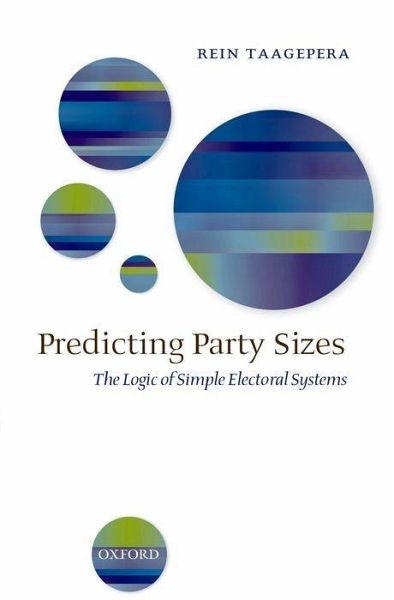
Predicting Party Sizes
The Logic of Simple Electoral Systems
Versandkostenfrei!
Versandfertig in 1-2 Wochen
173,99 €
inkl. MwSt.

PAYBACK Punkte
87 °P sammeln!
For a given electoral system, what average number and sizes of parties and government duration can we expect? Predicting Party Sizes is the first book to make specific predictions that agree with world averages. The basic factors are the numbers of seats in the assembly and in the average electoral district. While previous models tell us only the direction in which to change the electoral system, the present ones also tell us by how much they must be changed so as to obtain the desired change in average number of parties and cabinet duration. Hence, combined with known particularities of a cou...
For a given electoral system, what average number and sizes of parties and government duration can we expect? Predicting Party Sizes is the first book to make specific predictions that agree with world averages. The basic factors are the numbers of seats in the assembly and in the average electoral district. While previous models tell us only the direction in which to change the electoral system, the present ones also tell us by how much they must be changed so as to obtain the desired change in average number of parties and cabinet duration. Hence, combined with known particularities of a country, they can be used for informed institutional design. The book is useful to three types of readers: political science students learning the basics of electoral systems and their political consequences; practitioners of politics who consider changing the electoral laws; and researchers intent on connecting electoral and party systems. The book is structured accordingly. Chapters start with advice and recipes for practicing politicians, in non-technical language. The main text gives students an overview of electoral systems, worldwide, and supplies evidence for models that tie simple electoral systems (First-Past-The-Post and List Proportional Representation) to the number and sizes of parties and government duration. Chapter appendices present derivations of these models and other more technical issues of interest to researchers.














